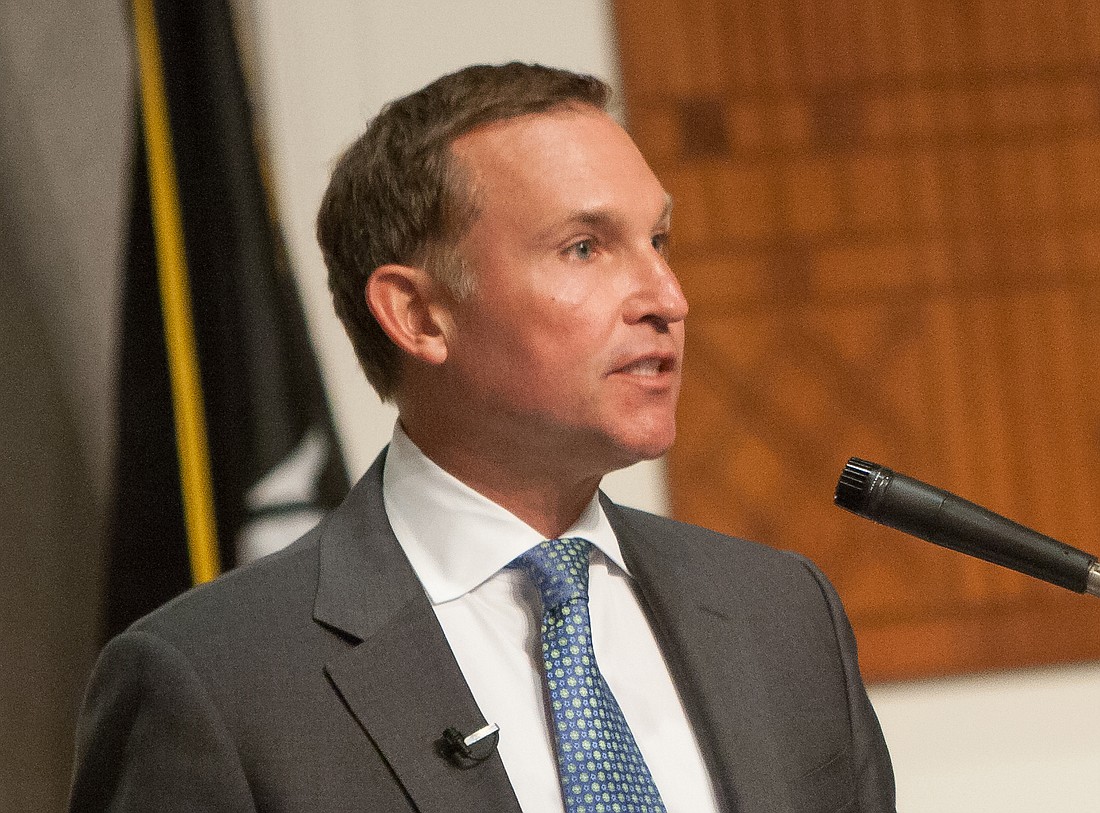
Mayor Lenny Curry said Thursday he would propose paying off Jacksonville’s $2.2 billion debt if city-owned utility JEA is sold.
The JEA board voted July 23 to give CEO Aaron Zahn the authority to explore avenues of privatizing JEA, including becoming a privately held or investor-owned company; evaluating an initial public offering making JEA a publicly traded company; or converting into a customer-owned utility.
Any deal to privatize JEA would have to pay the city at least $3 billion, according to the resolution approved by the board.
Curry would use the money to eliminate $1.1 billion in general and enterprise debt and $1.1 billion in Better Jacksonville Plan debt.
“Imagine being a debt-free city. We would be the lowest-risk city to invest in in the country,” Curry said. “Maybe one of the lowest in the world. It would be a game-changer in what our city would look like facing the world.”
Curry said eliminating the debt would free up $232 million in annual debt service payments and “more than replace” JEA’s annual contribution to the city — projected at $118 million in fiscal year 2019-20.
The remaining $800 million, Curry said, could be “thrown into a lockbox” with interest becoming another revenue source for the city.
Any decision to privatize JEA must be approved by City Council and Duval County voters.
Ordinance 2018-141-E, approved in November, requires a voter referendum if more than 10% of JEA’s assets are proposed to be sold.
Curry, who signed the voter referendum legislation, said any privatization deal would have to protect the benefits and pension for existing employees.
The mayor said Thursday he intends to introduce legislation to City Council that would codify those protections. A draft version of that legislation was presented at the July 23 JEA board meeting.
The public utility’s board approved a similar resolution that would guarantee full retirement and pension benefits for full-time workers employed with JEA at the time of privatization.
“They’ll (the JEA board) dictate how they take this to the public, but if all the conditions I’ve laid out are met, I’m supportive. But I don’t know if we get there,” Curry said.
“If they choose to pursue a privatization or recapitalization and my standards aren’t met, they can still go to the voters, they just won’t have me with them,” he said.
JEA says it is facing large-scale staff cuts and rate increases over the next decade because of declining revenue from shrinking energy and water sales.
A resolution drafted for the utility’s July 23 board meeting, but not voted on, would have cut 574 jobs and raised electric rates 26% by 2030.
Curry said the last debate to privatize JEA in November became politicized.
He said opponents should consider JEA’s financial obligations, like its estimated $1.2 billion liability in the Plant Vogtle nuclear power plant deal with Municipal Electric Authority of Georgia.
“It was frustrating then,” Curry said. “You ought to know the value of your asset, you ought to know the strategic way forward for your organization that is growing its customer base, losing revenues and has unlimited liabilities on a nuclear plant.”
A February 2018 report by Public Financial Management found a potential JEA valuation range of $7.5 billion to $11 billion.